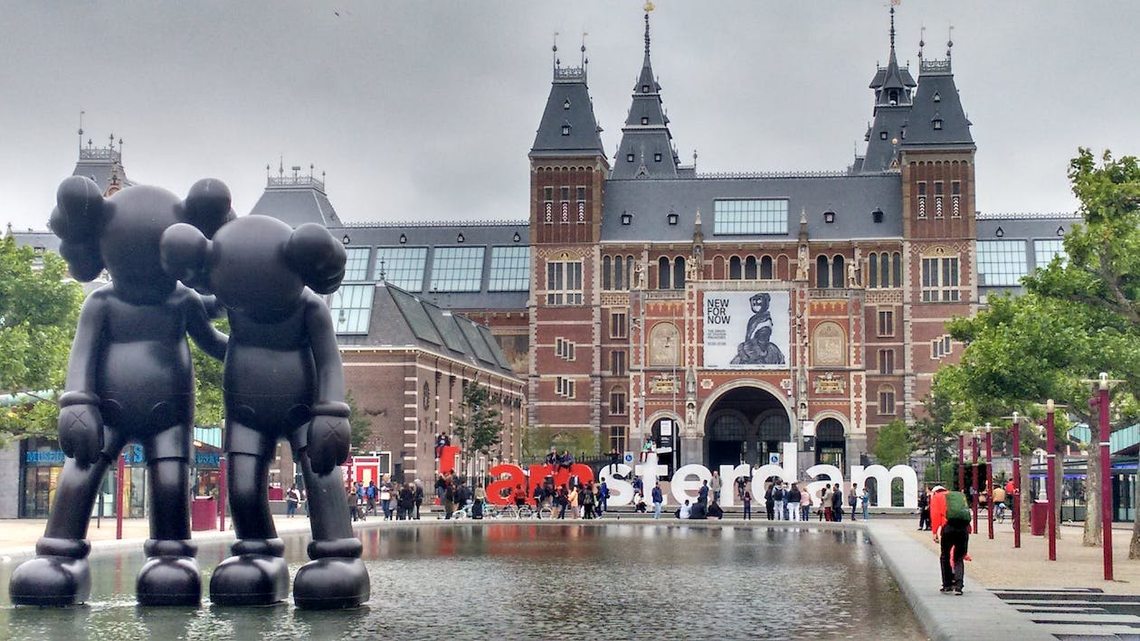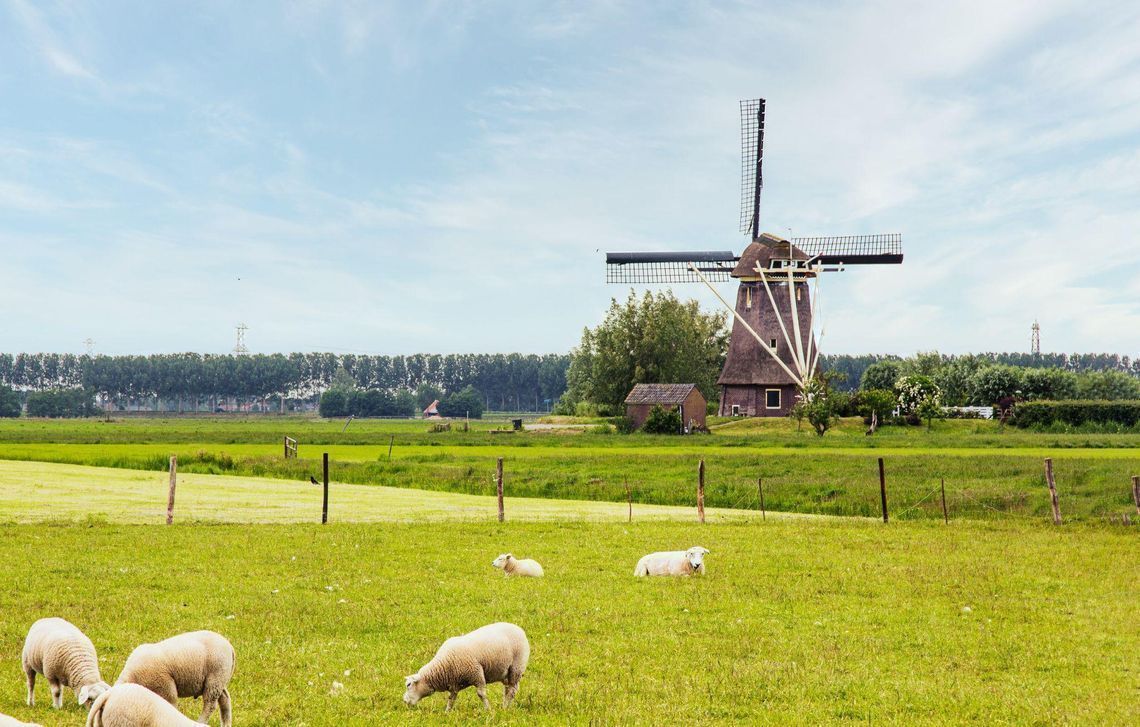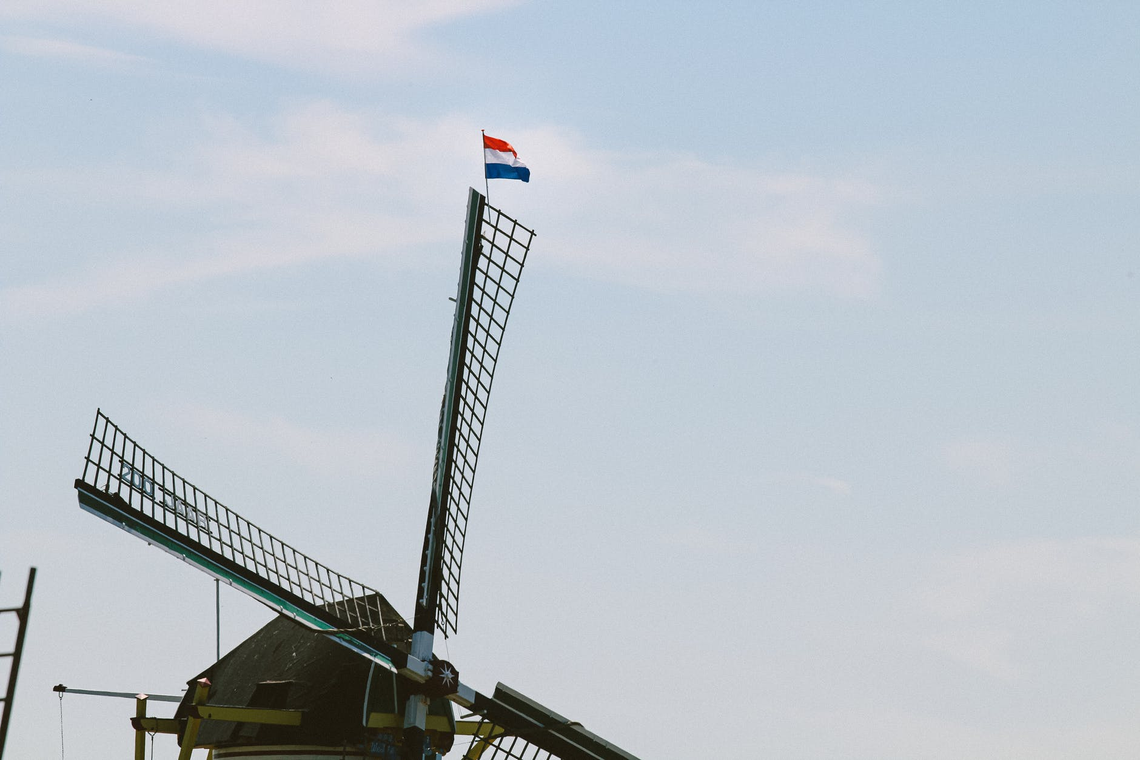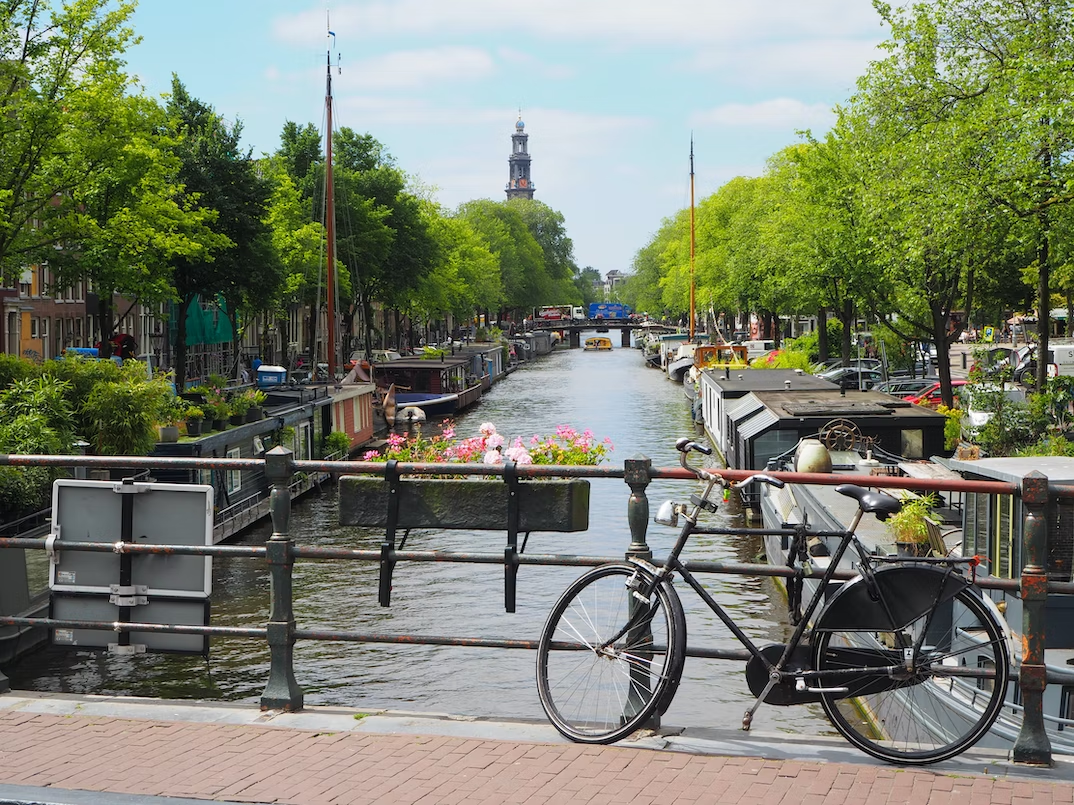Apply to a foreign university with confidence
- Properly fulfilled documents
- Perfect motivation letter
- Support from a personal mentor
- Offers from several universities
Universities in the Netherlands emphasize the high qualifications of professors and student independence, focus on innovation and research, and value freedom of thought and creative independence.
Free consultation





Universities in the Netherlands emphasize the high qualifications of professors and student independence, focus on innovation and research, and value freedom of thought and creative independence. In the country you can find an educational institution to fit any preference: there are both old university campuses and cutting-edge research centers. Universities offer more than 2100 study programs in English, and every tenth student in the Netherlands is a foreigner. Therefore, this northern country is rightly called the international center, where people from all over the world come to study.
Items 1-6 of 202
Advanced search| Program | Age | Duration | Min. cost | Avg. cost | Min. language proficiency | Exams |
|---|---|---|---|---|---|---|
| Foundation | 16+ | 1+ semester | 84,749 USD /sem | 15,820 USD | B2 | IELTS 5.0 /NT2-II |
| Bachelor's | 18+ | 3-4 years | 2,422 USD | 11,865 USD | B2 | TOEFL 80, IELTS 6.0 / NT2 (NLQF level 6) |
| MBA | 20+ | 1-2 years | 13,560 USD | 22,035 USD | C1 | TOEFL 90, IELTS 6.5 / NT2 (NLQF level 7) |
| Master's | 20+ | 1-3 years | 2,422 USD | 15,820 USD | B2 | TOEFL 80, IELTS 6.0 / NT2 (NLQF level 7) |
| Doctoral | 21+ | 4-5 years | 4,294 USD | 13,560 USD | C1 | TOEFL 90, IELTS 6.5 / NT2 (NLQF level 8) |
NLQF is the Dutch language proficiency level.
A foreign certificate of secondary education must comply with the level required for admission. Universities make a free request to Nuffic — a government agency that evaluates such documents. Regardless of the results, the final decision on student admission remains after the admission committee. A list of equivalence of international and Dutch diplomas can be found here. As a rule, certificates of most EU nationals are accepted as equivalent.
Admission to universities in the Netherlands goes through the Studielink platform. Applicants select a program and upload the necessary documents to the site. Criteria and requirements vary by course and institution. The standard package of documents includes:
There are 3 main types of universities in the Netherlands:
By type of financing, Dutch universities are divided into:
As such, there are no vocational colleges in the Netherlands. The higher professional education here is done through associate/bachelor's degrees at universities of applied sciences. However, some research universities have their own university colleges. They were first created in 1997 on the basis of programs of liberal arts and sciences from the USA. The main emphasis is on the student community and an inclusive learning environment. Colleges take applicants with various specialties from around the world. They study, live, and work together, creating an international community.
Most colleges offer education in the field of art, humanities, natural sciences, and social sciences. Together with the supervisor, students choose or make their own curriculum. Classes are small and interactive, all courses are taught in English.
There are no unified college entry requirements. However, since the programs are specific, the selection process is more thorough. The selection committee pays extra attention to the academic success and personality of the candidates. Applicants must be highly motivated, intellectually curious, and interested in several academic disciplines. A future student should consider that he will live with representatives of different nationalities, so it is important to be open-minded and accepting of different cultures. In addition to the usual set of documents, university colleges may also require motivation and recommendation letters or an interview.
In total there are 9 colleges, each of which is associated with a university:
| College | City | Areas of study | Number of students per year | Class size | Cost for foreigners | Cost for EEA students |
|---|---|---|---|---|---|---|
| Amsterdam University College | Amsterdam | Natural, and social sciences, humanities | 300 | 20 | 13,535 USD | 4,957 USD |
| Erasmus University College | Rotterdam | Humanities, natural, social and behavioral sciences, economics and business | 218 | 12 | 13,560 USD | 4,746 USD |
| Leiden University College | Hague | World politics, law, healthcare, economics, etc. | 200 | 20 | 14,842 USD | 4,992 USD |
| University College Groningen | Groningen | Natural and social sciences, humanities | 150 | 24 | 13,673 USD | 4,616 USD |
| University College Maastricht | Maastricht | Natural and social sciences, humanities | 225 | 12 | 12,317 USD | 3,893 USD |
| University College Roosevelt | Middelburg | Natural and social sciences, humanities | 200 | 21 | 9,992 USD | 3,656 USD |
| University College Tilburg | Tilburg | Business, economics, law, social sciences and humanities, art and culture, cognitive neurobiology | 150-200 | 25 | 9,831 USD | 2,354 USD |
| University College Twente | Enschede | Engineering, physics, mathematics and social Sciences | 100 | 20 | 14,219 USD | 4,708 USD |
| University College Utrecht | Utrecht | Natural and social sciences, humanities, special programs | 250 | 20 | 12,995 USD | 4,802 USD |
Research universities (WO, wetenschappelijk onderwijs) implement academic or science-based programs. The main goal of WO is independent research or professional application of scientific knowledge. There are 14 such institutions in the Netherlands. They offer programs in various fields. For example, economics, law, medicine, language, and culture, as well as natural sciences and management. Universities vary in size: from 6 to 30 thousand students are registered in them. In total, about 240,000 students study in the programs. The educational process is divided into 3 stages:
Since many WO programs also provide professional training, most graduates do not work in an academic setting.
Universities of applied sciences (HBO, hoger beroepsonderwijs) provide higher professional education. HBO programs focus on a more practical form of learning. Their goal is the transfer of theoretical knowledge and the development of skills for practical application. In the Netherlands, there are 36 universities of applied sciences offering diploma programs in the fields of economy, technology, agriculture, health, arts, social sciences, and education.
What sets HBO apart is the problem-based learning approach. Students work in groups and engage in their own projects. Thus, universities prepare students for their future careers. Practical experience and internships are an important part of the training. The largest universities of applied sciences accept from 20,000 to 40,000 students. In total, more than 456,000 people study in professional programs[2]. Stages of study:
A master's degree at the HBO level makes it possible to enter PhD in research universities. Also, after the first year of bachelor’s studies at HBO, applicants can enter the bachelor's program at WO in a similar or related specialty.
Practice-oriented education allows graduates to become in-demand specialists. Most of them (95%) find their first job a year after graduation.
Institutes for international education (IE) offer short-term training courses, Master's programs, and doctoral programs (in only 1 institution). Most IEs are part of research universities. There are 6 major institutes for international education, including Maastricht School of Management, KIT (Royal Tropical Institute), Tyndale Theological Seminary, and IHE Delft Institute for Water Education. Some former IE institutes have become part of research universities, and their programs can now be found there.
Association of Universities in the Netherlands (Vereniging van Universiteiten, VSNU) unites Dutch research universities (WO). VSNU represents WO universities in politics and society. The association also acts as an employer. It negotiates a collective agreement between the Dutch universities and the unions.
Through the association, research universities:
VSNU provides a platform for the exchange of knowledge and experience and represents the interests of universities in national politics. For example, these may be requirements to reduce the number of rules and increase funding. Lobbying is successful when universities are successful and accountable for their actions. The association helps them in this. The direct responsibilities of the VSNU include:
The Netherlands Association of Universities of Applied Sciences (Vereniging Hogescholen) unites all 36 state universities of applied sciences (HBO) in the Netherlands. The association pays special attention to strengthening the public image of HBO in the country. To this end, the association maintains contacts with various people and organizations. For example, with journalists and members of the parliament to the Dutch Federation of Small and Medium-sized Enterprises, and ministries. The association also functions as an employer on behalf of the HBO universities. Thus, it is negotiating with labor unions on collective bargaining agreements.
The Association of Dutch University Libraries and the Royal Library (UKB) unites the largest research and academic libraries of universities in the Netherlands.
UKB is an advisory body to Dutch universities and government institutions in the field of scientific information. UKB Members: Royal National Library of the Netherlands and University Libraries of the Netherlands. The association maintains relations with the networks of university libraries in Germany, Belgium, and other countries.
UKB Working Groups:
Also, universities in the Netherlands are part of a number of international associations. For example, the European Association of Distance Learning Universities (EADTU), the International Association of Universities (IAU), Cumulus Association, the Worldwide Universities Network (WUN), the European University Association (EUA) and others.
The first Dutch universities were founded during the transition from the Renaissance to the Enlightenment. The spirit of science, the thirst for knowledge, and the rejection of obsolete dogmatic philosophy have become the ideological pillars of new educational institutions. This is manifested in traditions, ceremonies, and even in the architecture of buildings. Studying in such places, students relate to the centuries-old heritage and receive education at universities with an established reputation.
Items 1-4 of 4
Advanced searchTechnical universities stand apart in the country's education system. Here, advanced scientific developments and research are conducted. The result is unique inventions, such as Bluetooth technology that was developed at Delft University of Technology. Other universities, such as the Eindhoven University of Technology and the University of Twente, are famous for their interdisciplinary research and a creative approach to theoretical and applied research projects.
Items 1-3 of 3
Advanced searchAs such, there are no free universities in the Netherlands. State universities set low (statutory) prices for EU citizens. However, the cost for foreigners is several times higher than the ones for local students. Therefore, the state offers a large number of grants and scholarships. They can be found in a special search engine that shows relevant options.
60+ countries
we work with
$1,000,000 saved
by students through scholarships
6,400 offers
our students got